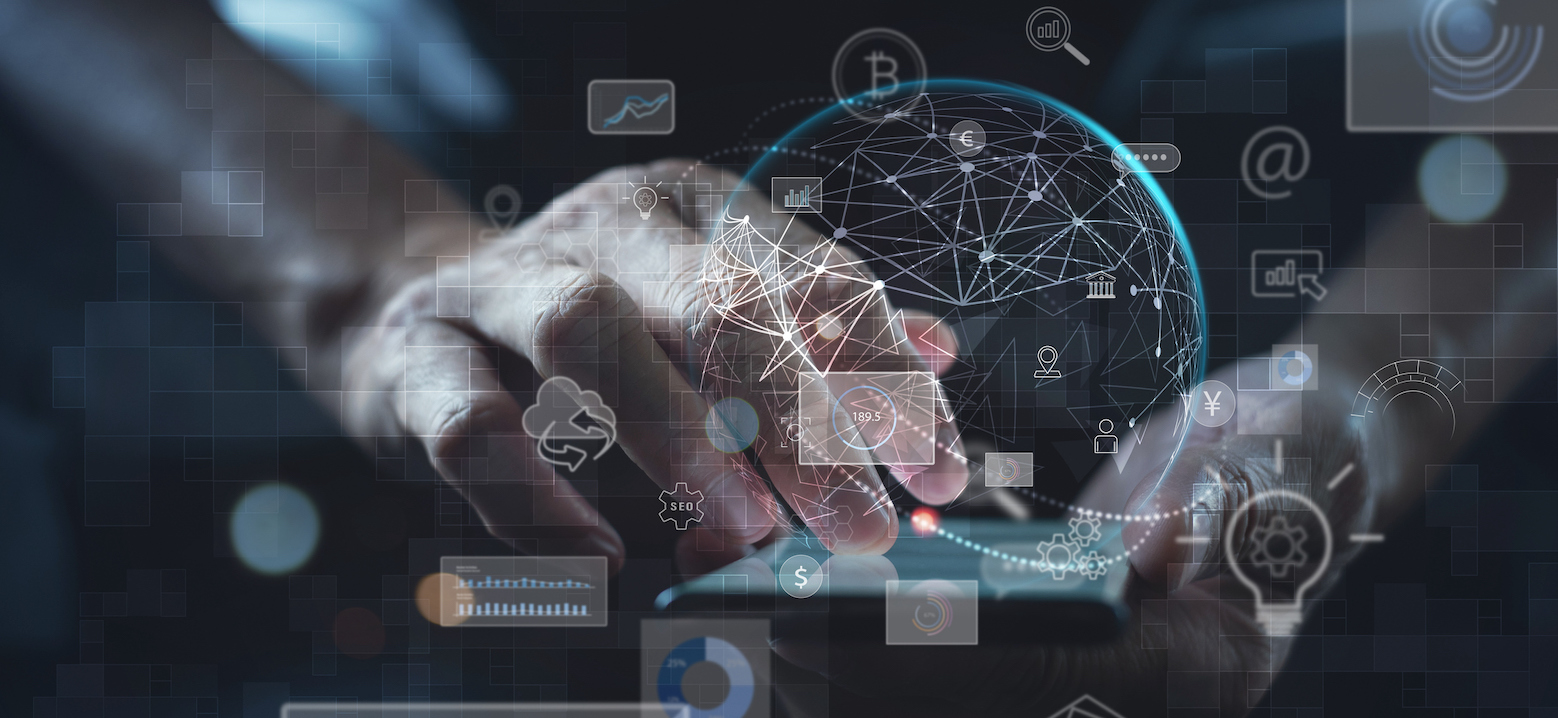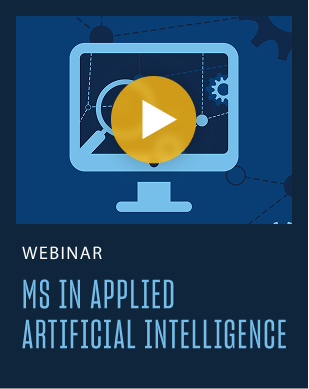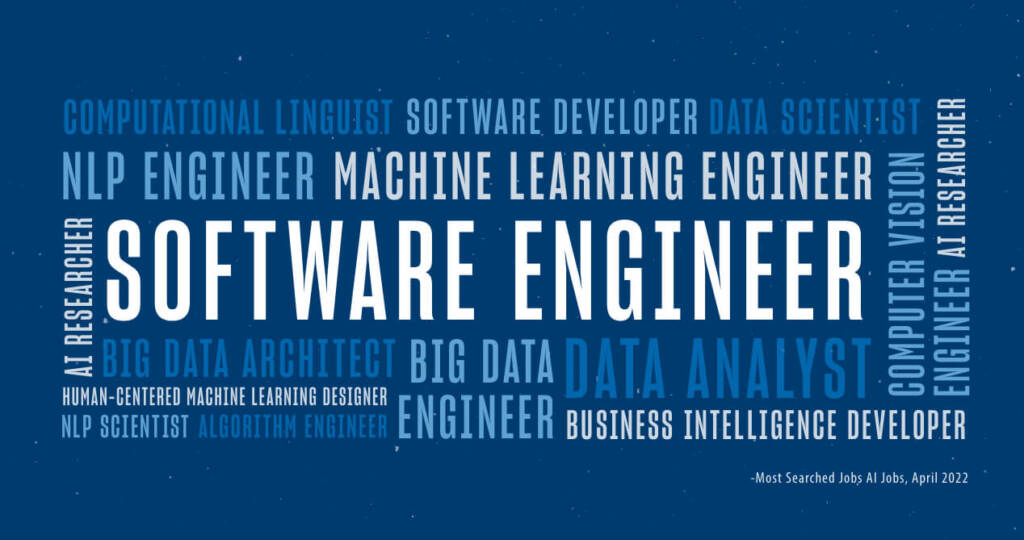Data Science and AI Figure Prominently in Humanity’s Future — What About Yours?
It is fascinating to learn about how data science and artificial intelligence are changing the world around us. These important, rapidly evolving fields are expanding the boundaries of human ingenuity by creating systems and software to perform tasks that are too complex and expansive to be handled by humans alone.
Data scientists and artificial intelligence professionals apply advanced skills, tools and training to:
- Uncover deep insights into the challenges facing businesses across all industries as well as society as a whole, and
- Develop intelligent systems capable of learning and performing functions on their own without the need for human intervention.
Not surprisingly, data science and artificial intelligence have also become lucrative, in-demand career tracks — for those with a science or engineering background, as well as those who have specific business domain expertise, a knack for technology and the motivation to expand their knowledge and skills.
It is also the case that both of these fields practically require a master’s degree. According to a survey by recruiting firm Burtch Works, 93% of data scientists and AI professionals hold an advanced degree.
Many colleges and universities now offer advanced degrees in one or both disciplines. So for those interested in launching or advancing a career in these closely related but distinctly different fields, the question often comes down to this: a master’s in artificial intelligence or a master’s in data science?
Either degree can be a pathway to career success, especially for those working in or aspiring to a career in technology fields.
This post presents a side-by-side breakdown of these two advanced degrees. But first, let’s start by taking a close look at each discipline.
What Is Artificial Intelligence?
Artificial intelligence (AI), according to Techopedia, is “a branch of computer science that focuses on building and managing technology that can learn to autonomously make decisions and carry out actions on behalf of a human being. AI is not a single technology. It is an umbrella term that includes any type of software or hardware component that supports machine learning, computer vision, natural language understanding (NLU) and natural language processing (NLP).”
One of the chief differences between the two closely related disciplines is that, while data science focuses on gaining insights from data using analysis, visualization, and prediction in processes controlled by humans, artificial intelligence focuses on autonomous decision making and actions — relying on humans to set up smart systems and then let them do the work.
High-profile applications of artificial intelligence, present and future, include:
- Self-driving cars
- Fraud detection in banking
- Highly personalized product recommendations from eCommerce providers
- AI-driven recommendations for music and movies
- Digital voice assistants like Siri and Alexa
- Smart home devices and appliances
- Opening your phone with facial recognition
Of course, there are many more. (See “31 Examples of Artificial Intelligence Shaking Up Business as Usual”).
What is Data Science?
Data science, according to Techopedia, is an expansive field that refers to “the collective processes, theories, concepts, tools and technologies that enable the review, analysis and extraction of valuable knowledge and information from raw data.” Leveraging the use of “theoretical, mathematical, computational, and other practical methods to study and evaluate data,” data science greatly expands the ability of organizations to extract insights and make more informed (i.e. “data-driven”) decisions from vast amounts of information that humans and machines produce every single day.
High-profile applications of data science (some of which are also impacted by AI) include:
- Finance (risk analysis, predictive analysis, fraud detection, etc.)
- eCommerce (market and customer behavior analysis, pricing, etc.)
- Manufacturing (predictive maintenance and asset monitoring, energy efficiency, quality improvements)
- Education (scheduling, measuring instructor/student performance)
- Transportation (optimizing shipping and travel routes in real time)
- Love (algorithms that drive popular dating sites)
Data science and AI are also having a profound impact in the world of health care, from operational efficiency to diagnostics and patient care. Data from medical equipment, patient wearables, insurance claims, drug trials and countless additional sources is applied toward discovering new medications, streamlining operations, improving patient care and even fighting global pandemics.
The field of health care “generates tsunamis of data, vast amounts of money are spent on it, and there are plenty of opportunities to improve the quality of its products and services by making them more intelligent and intelligible,” according to AI expert Calum Chace’s look at artificial intelligence in health care by Forbes. In addition to other applications, data science and analytics is integral to the game-changing field of health informatics (see “How Data Science is Reshaping Health Care”).
Towards Data Science offers another eye-opening review in “10 Awesome Real-World Applications of Data Science and AI,” including:
- Chatbots
- Email spam filtering
- Autocomplete and autocorrect for text
- Robotics
Master’s Degree Comparison Table [Artificial Intelligence vs. Data Science]
For this comparison of the master’s in artificial intelligence vs. a master’s in data science, we will examine the advanced degree programs offered by the University of San Diego.
| Artificial Intelligence | Data Science | |
|---|---|---|
| Program/course content | Probability and Statistics, Machine Learning, Natural Language Processing, Neural Networks, Computer Vision, etc. | Probability and Statistics, Data Mining, Text Mining, Predictive Modeling, Machine Learning and Deep Learning, etc. |
| Learning objectives | Ability to develop and deploy intelligent systems that autonomously solve challenging problems in a wide range of real-world, data-rich domains | Mastery of the technical and soft skills necessary for solving challenging analytics problems in a wide range of real-world, data-rich domains |
| Program goals | Preparing graduates for success in the workplace and leadership roles, engaging students in hands-on project work and portfolio building (Capstone course) | Preparing graduates for success in the workplace and leadership roles, engaging students in hands-on project work and portfolio building (Capstone course) |
| Jobs the degree prepares you for | AI engineer, research scientist, data scientist, machine learning engineer, user experience designer, computer vision scientist | Data scientist, quantitative analyst, data engineer, data architect, machine learning engineer, business intelligence analyst |
| Tools/skills needed | Python, R, MATLAB, Hadoop, Spark, TensorFlow, etc. | Python, R, MATLAB, Excel, Tableau, Power BI, Hadoop, SQL, etc. |
| Ideal incoming student characteristics * | BS in statistics, mathematics, computer science, engineering, STEM; knowledge of/experience with probability and statistics, calculus, Python; business domain experience | BS in science, mathematics, engineering, IT, computer science, STEM; knowledge of/experience with data analytics, mathematics, statistics, Python, R; business domain experience |
* Both fields also attract career changers and those who are seeking to learn to apply AI or data science to their specific business domain. Both programs at USD help prepare promising students for academic and career success by providing resources and preliminary coursework, as well as enrollment advice.
Diving Deeper into AI and Data Science
If you are interested in launching or advancing a career in artificial intelligence or data science, then conducting further research will definitely be a smart strategy. And it is important to emphasize that earning a master’s degree in either of these disciplines is no easy task.
Learn How a Master’s in AI Can Open Doors to Exciting Career Paths — Watch the Free Webinar
Several key areas of self-assessment include how your aptitude, education, and experience align with each of these disciplines. It is also worth taking into consideration several key differentiators if you are evaluating the University of San Diego against competing advanced degree programs. These include:
- A strong emphasis on ethics and social responsibility
- Ongoing real-world program input from Board of Industry Advisors
- A proven history in offering 100% online master’s degree programs
- Comprehensive support from a team of academics and advisors who are invested in your success
- A focus on teaching technical knowledge combined with guiding students via practical, hands-on experience
For those interested in learning more about how earning your master’s might serve as a foundation for career success in the in-demand fields of artificial intelligence and data science, USD’s advisors and program leaders are available to consult with you about the possibilities.
RELATED READING:
Artificial Intelligence
Guide to Starting a Career in Artificial Intelligence
Artificial Intelligence Salaries [By Job, Region, Education & More]
8 Questions to Ask Before Selecting an Artificial Intelligence Master’s Degree Program
Data Science
What is Data Science? A Complete Guide to the Field
7 Questions to Ask Before Selecting a Data Science Master’s Degree Program




